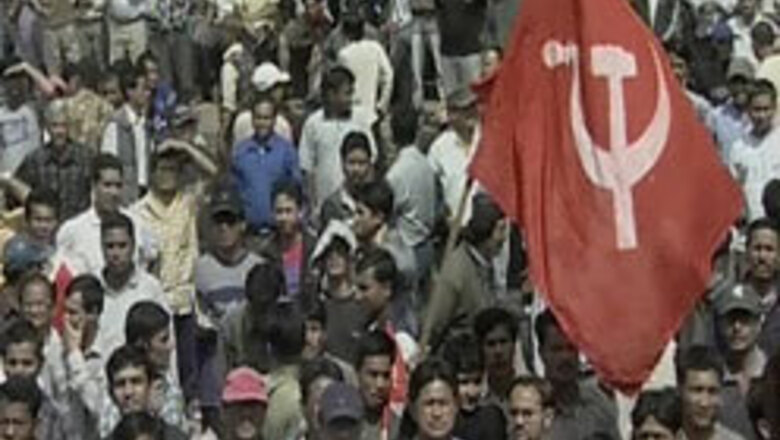
views
Kathmandu: A committee headed by a former Supreme Court judge began work on Monday on drafting an interim Constitution for Nepal, a key demand of the country's Communist rebels to renounce their decade-long insurgency.
However, the panel was not expected to meet a Friday deadline for presenting a first draft of the Constitution to the country's leaders.
Committee member Harihar Dahal said it could take weeks for the committee to adequately gather information and consult the public on the document.
Also, the full membership of the committee still had not been finalized.
''We are still waiting for the government to add new members to the committee. We expect the announcement today,'' Dahal said.
The rebels have said they would join the country's new government only after the interim constitution is in place.
The committee's current six members - all former judges or legal experts - were chosen during a meeting of Prime Minister Girija Prasad Koirala, rebel leader Prachanda, and several leaders of the seven-party ruling alliance on June 16.
They also agreed during that meeting that a first draft of the Constitution - expected to officially strip the monarch of his power over the legislature and army - would be presented to the country's leaders on Friday.
But Dahal said that could take weeks as the committee still has to collect expert opinion and then consult the public. ''We have begun to do our research and study models of Constitution from different countries,'' he said.
Rewriting the Constitution has been a key rebel demand and the stumbling block during previous rounds of peace talks in 2001 and 2003.
The rebels have been fighting since 1996 to topple Nepal's constitutional monarchy and replace it with a communist state, but earlier this year joined an alliance of political parties to force King Gyanendra to relinquish the absolute power he had seized in early 2005.
Weeks of often bloody street protests eventually forced the king in April to reinstate Parliament and name veteran politician Koirala as prime minister.
The new government agreed to draft an interim Constitution that would stand until a special assembly, to be elected within the year, wrote a new constitution for the impoverished Himalayan kingdom.
Work on the Constitution was delayed after women's and minority ethnic groups protested that they also should be included on the committee.
















Comments
0 comment